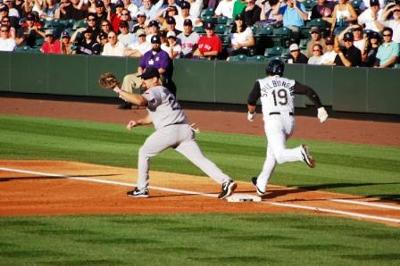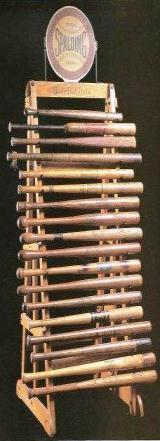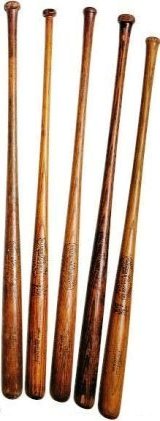can you be tagged out at first if you do not make an attempt to second base?
by Eugene
(Wood Dale IL)

Photo Bill Stanton: Checkswing.com
Eugene asked: Player hit a ball down third base line. Ran to first, was safe and over ran first base, turning away into foul territory. The first base coach thought the ball was foul and sent the runner back to home plate to continue batting. The pitcher tagged him with the ball on the way back to the plate. The umpire called him out! Is he out even though he did not make an attempt to second base?
Rick answered: Eugene, great question. I bet this one got interesting!
A couple of the rules that come into play here:
A batter/runner who reaches first base safely and then overruns or overslides may immediately return without liability of being put out, provided he does not attempt to feint an advance to second.
Your runner made no attempt towards second, thus has the right to return to the bag safely.
Once he went past first base, on his way back to the plate, it requires an additional look.
Any runner, after reaching first base, who leaves the baseline heading for the dugout or his defensive position believing there is no further play, shall be declared out if the umpire judges the act of the runner to be considered abandoning his efforts to run the bases.
Your runner certainly didn't head for the dugout or his defensive position; but he did leave the baseline. His new baseline was between first and second, once he had touched first base safely.
If it was at that time a dead ball situation, there would be no opportunity for an out.
If the ball was still live, then the tag by the pitcher would be a continuation of the play, and the runner would be out because he was off the base during a live ball situation.
It would be the same as if the runner had walked off first base towards second base, he was liable to be tagged out.
I would say the umpire got this one right, if indeed the ball was still live. If someone had called time and the ball was dead, the runner would not be out.
Live or dead is the difference in this one.
Yours in baseball,
Rick
Click here to post comments
Join in and write your own page! It's easy to do. How? Simply click here to return to Ask The Baseball Coach.
|



